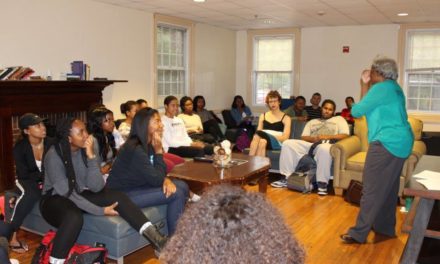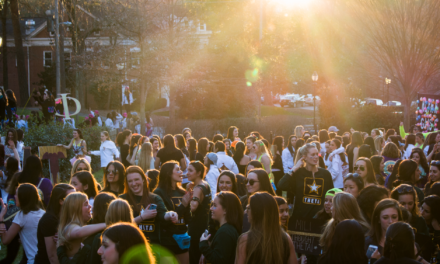Yes, there is a graveyard on campus.
At Clairmont Campus to be exact, and only a less-than-five-minute walk from the Student Activity and Academic Center (SAAC).
One of the earliest historical landmarks of DeKalb County, Hardman Cemetery was created when Rody, the one-and-a-half-year-old child of Naman Hardman, passed away in February 1825.
The State of Georgia hired Naman Hardman in 1823 to build roads, after the state and federal governments forced the Creek Indians out of Georgia. The Creek Indians were forced to cede the land that is now DeKalb County.
A devout Baptist, Hardman began to hold prayer meetings in his log cabin, which he built near what is today Clairmont Road. He eventually built a meetinghouse in 1826 and with it, deeded two acres for a cemetery. This cemetery is older than Emory and the City of Atlanta.
Vice President and Deputy to the President Gary Hauk said it would be hard to imagine there is anything in the DeKalb County area that is older than the graveyard at Clairmont. Hauk has written extensively on Emory’s history and most recently co-wrote and published Where Courageous Inquiry Leads – The Emerging Life of Emory University.
The cemetery has 23 documented burials, one of which is Naman Hardman’s sister, Elizabeth. She ultimately married a doctor named Chapmon Powell who owned a medicine house near, what is today, the Package Store located on Clairmont Avenue just past Los Loros Mexican Restaurant.
According to Hauk, there is also an unknown amount of unidentified slaves buried in the cemetery. Robert McNeely was the last person to be buried at the Hardman Cemetery in 1909.
This article marks the start of a new beat for the news section focusing on Emory’s history. We hope to expose students, faculty and staff to the unique stories of Emory’s past. If you have any questions or suggestions for articles, email Nick Sommariva at nsommar@emory.edu.
The Emory Wheel was founded in 1919 and is currently the only independent, student-run newspaper of Emory University. The Wheel publishes weekly on Wednesdays during the academic year, except during University holidays and scheduled publication intermissions.
The Wheel is financially and editorially independent from the University. All of its content is generated by the Wheel’s more than 100 student staff members and contributing writers, and its printing costs are covered by profits from self-generated advertising sales.




